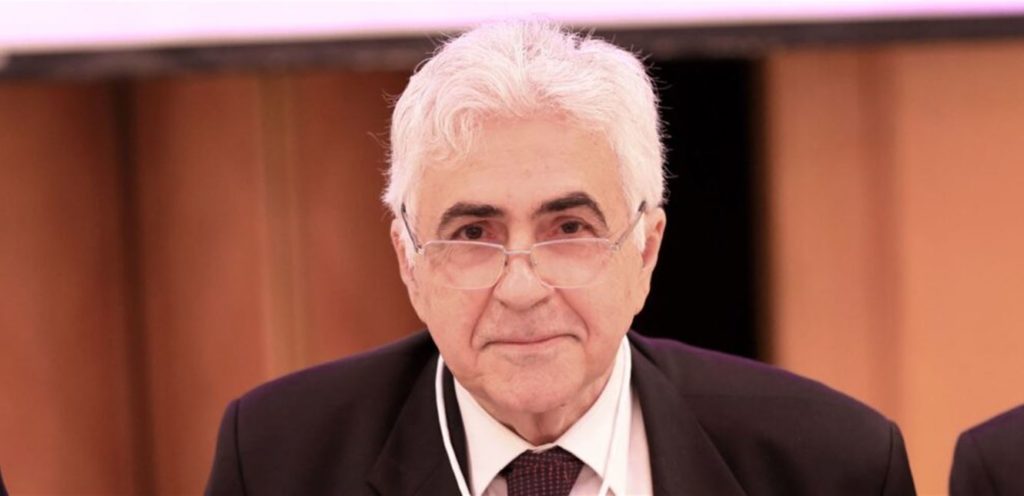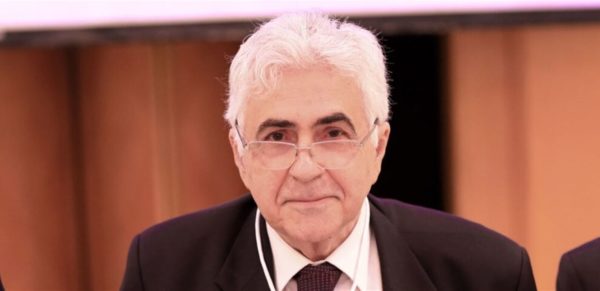Lebanon’s foreign minister Nassif Hitti resigned Monday in protest at the government’s mishandling of a spiralling economic crisis, warning that if there is no will to reform “the ship will sink”.

“I have decided to resign today as foreign minister,” Hitti said in a statement, charging that the government had shown no will to initiate changes demanded by the International Monetary Fund.
“I participated in the government under the logic of serving one boss, which is Lebanon,” the 67-year-old veteran diplomat added. “But I found that in my country there are many bosses and contradictory interests.
“If they don’t unite in the interest of the Lebanese people … then the ship, God forbid, will sink with everyone on board,” he added, warning that Lebanon risked becoming a “failed state”.
Prime Minister Hassan Diab’s office said he had “accepted the resignation on the spot and started making contacts and examining options in order to appoint a new minister”.
Lebanon is mired in its worst economic crisis since its 1975-1990 civil war, with runaway inflation, galloping prices and bank capital controls fuelling poverty, dispair and angry street protests.

Prime Minister Hasan Diab’s government, formed in January and billed as a group of technocrats, has struggled to secure international financial support.
Hitti’s resignation comes after France’s top diplomat Jean-Yves Le Drian during a visit last month scolded Lebanon’s leadership for failing to take the necessary measures to save the country from collapse.
The outgoing Lebanese foreign minister too called on government officials to “reconsider many of their policies and practises so that the nation and its citizens are given priority over all other considerations”.
– ‘Total confusion’ –
Lebanon is grappling with a steep decline in the value of the Lebanese pound, with nearly half the population now living below the poverty line and more than a third of the workforce unemployed.
The free-falling economy has sparked mass protests since October against a political class widely accused of being incompetent, corrupt and beholden to sectarian interests rather than a national vision.
The government, which defaulted on its sovereign debt for the first time in March, has pledged an ambitious raft of reforms and two months ago entered into talks with the IMF.
However, the negotiations have stalled, with two top members of the government’s own team resigning, allegedly in frustration at the administration’s lack of commitment to reform.
The government says it needs more than $20 billion in external funding, which includes $11 billion pledged by donors at a Paris conference in 2018 that was never delivered over lack of reforms.
Hitti’s resignation shows “that Lebanon is in a state of total confusion,” said Hilal Khashan, a professor at the American University of Beirut.
“This government of so-called technocrats has to always refer back to those who put it in office before it can act on any matter,” he said, meaning that it “is not autonomous”.
Diab’s cabinet was formed with the backing of the powerful Shiite movement Hezbollah and its political allies, including the Free Patriotic Movement, founded by Christian President Michel Aoun.
Following Hitti’s announcement, Aoun met with Diab to discuss “next steps,” according to a tweet by the presidency.
Hitti started his career at the Arab League, where he worked in the office of the then secretary general and later headed the mission in Paris.
Local Lebanese media cited several reasons for his resignation, including reports that he was displeased with the way Lebanese officials were encroaching on his prerogatives and mishandling diplomatic ties.
Hitti was reportedly sidelined from a meeting between Le Drian, Diab and several cabinet ministers and was displeased with the manner in which the premier handled the official visit.
General Security chief Abbas Ibrahim also visited a number of Gulf countries last month in a diplomatic mission usually reserved for the foreign minister.
(AFP/ FRANCE24)


Leave a Reply
You must be logged in to post a comment.